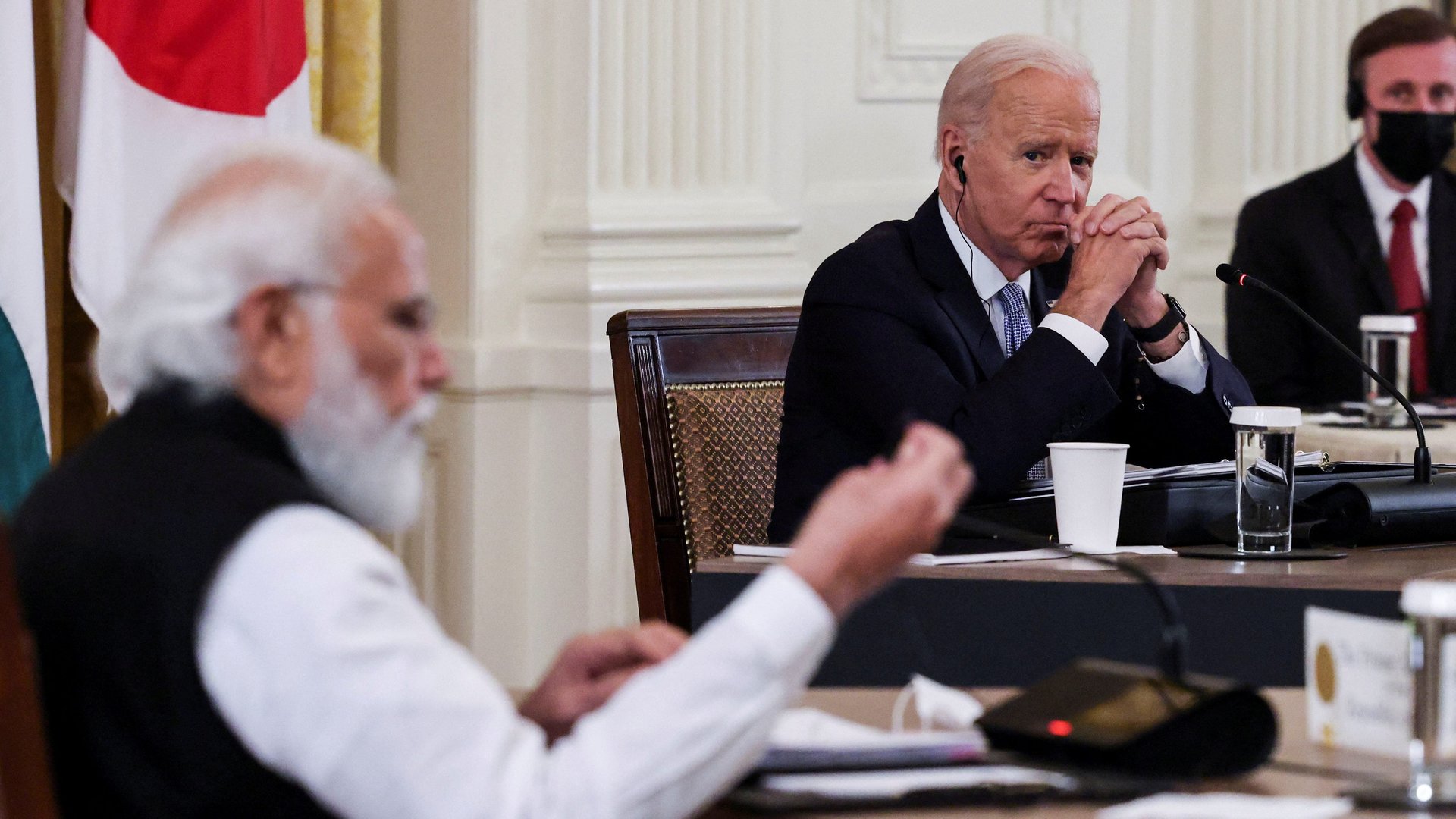Biden and Modi are discussing India’s stance on Russia-Ukraine
US president Joe Biden is once again trying to figure out Indian prime minister Narendra Modi’s refusal to join in cutting Russia adrift. The two leaders are scheduled to speak today (April 11).


US president Joe Biden is once again trying to figure out Indian prime minister Narendra Modi’s refusal to join in cutting Russia adrift. The two leaders are scheduled to speak today (April 11).
At a virtual summit, the White House said it “will continue our close consultations on the consequences of Russia’s brutal war against Ukraine and mitigating its destabilizing impact on global food supply and commodity markets.” The world leaders will also discuss climate change, covid-19, and security and democracy in the Indo-Pacific, the statement continued.
The US has not been pleased with India’s seemingly neutral stance on Russia’s military actions in Ukraine. While officially India has called for de-escalation and urged both countries to adopt the path of diplomacy, it has consistently abstained from voting on the Russia-Ukraine issue at various United Nations platforms.
Biden and Modi last met virtually during a Quad summit—with Australia and Japan—in March. At the time, Biden said India’s stance on Russia was “somewhat shaky.”
India’s neutral stance on Russia
Most recently, India was among the 58 countries to abstain from a vote to remove Russia from the UN Human Rights Council. The motion, initiated by the US, was passed on April 8. “If India has chosen any side, it is the side of peace and it is for an immediate end to violence,” India said during the vote.
India also abstained on March 23 from voting on a resolution proposed by Russia at the UN Security Council.
Aside from intangible UN resolutions and votes, India has also continued to buy Russian oil, now at discounted prices. But external affairs minister S Jaishankar told parliament on March 24 that India in fact, imports very little oil from Russia. “It is less than 1% of our imports,” he said. “Many other countries import 10, 15 to 20 times the amount of oil.”
More important are India’s missile deals with Russia, of which the US has disapproved for years. But the US has held off from sanctioning India for its defense and oil purchases, likely because it sees the country as a key ally against China.